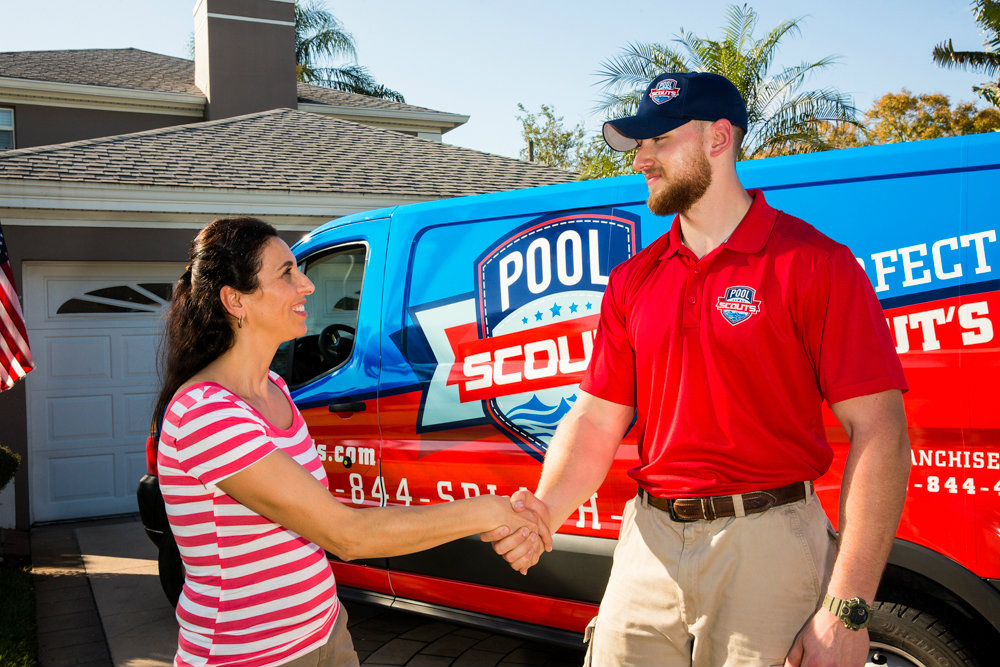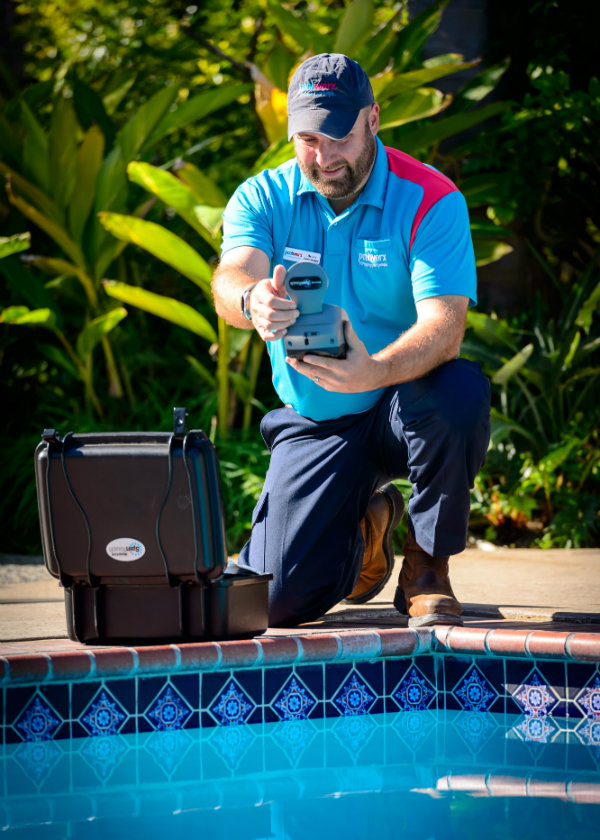Hungry? What are you in the mood for?
When you think through your options, you’ll probably find the majority of them are franchises: Subway, McDonald’s, Panda Express, etc.
In time, the pool/spa industry — mostly the service and retail sectors for now — could look similar. When homeowners search for a pool/spa professional, they likely will find one from a franchise, or at least that’s what some predict.
Franchisers report that they are having tremendous success recruiting newcomers to the industry. As the old guard ages out, many of those replacing them will come up through franchised networks, they say. People who have zero experience maintaining or repairing pools are entering the field with the support of companies that train and brand them and provide a wealth of marketing and administrative support.
For the most part, joining with professionals from other fields is easier than converting existing pool and spa retailers and service technicians to the business model, most of the franchisers report. But some claim success there, too.
Whether or not it’s right for you depends on a wealth of factors. Here, we’ll examine the pros and cons.
MAKING THE CUT
For Brian Hepner, the decision was based purely on a desire for growth. His firm had plateaued at about 30 accounts, and the prospect of offloading some of the day-to-day office duties appealed to him: Such a move would allow him to spend more time actually working on pools.
“There are a lot of hats that you wear [running your own business], and I wanted to focus more on being out in the field and management,” Hepner says.

He joined America’s Swimming Pool Co. in 2012 and he hasn’t looked back since. Today, his business maintains 200 pools in Edmond, Okla. , and he says he’s outpacing his non-franchised peers.
Independent pool/spa companies that convert to franchises do it to gain an edge in an increasingly competitive market. Franchisees become part of a network that leverages buying power with suppliers, improving profit margins. Generally speaking, they also have a more sophisticated web presence, with teams of digital marketers promoting their locations through pay-per-click ads, search engine optimization and social media. Back-end support for administrative matters like taxes, billing and payroll, along with proprietary software programs that help log pool chemical records and track inventory can enhance the package, too.
But for every success story like Hepner’s, franchisers say there are numerous examples of experienced pool professionals who, for one reason or another, didn’t make the cut. Having money to buy a territory is far from the only qualifier. Franchisers say they put candidates through an extensive screening process.
“They don’t get to buy a franchise,” says Timothy Holadia, director of franchise development for Pool Scouts, headquartered in Virginia Beach, Va. “They’re awarded a franchise … That’s not just semantics.”
Prospective franchisees must apply. There are multiple meetings between the parties. One franchiser even conducts a test to determine an applicant’s psychological profile.
Franchisers must exercise caution because they have a lot of money on the line. One franchiser said it doesn’t even make money upfront on the sale of a franchise, once travel arrangements and training are factored in. For them, the profit comes from franchise fees, provided the franchisee is successful.
“We’re being very aggressive in our growth, but we’re also being selective,” Holadia says. His company launched in 2016 as part of Buzz Franchise Brands, which included a mosquito-control division that has since been sold.
Today, 17 Pool Scout franchisees operate in 39 territories. The majority came from other fields. They’re former office workers, lawyers, corporate executives, veterans and one disc jockey. There are several pool and spa veterans, too. But that demographic has been harder to convince, Holadia says.
People from the industry typically come to a franchise with their own ideas and they don’t always mesh with a franchise system. There have been certain deal-breakers such as refusing to drive a certain model of truck or not agreeing to the marketing plan.
-
Regarding Retail: Franchisers Differ on the Future of Pool and Spa Stores
Some franchisers say they're equipping franchisees with the resources to compete against Amazon. Others want nothing to do with stores.

“I’ve had people say, ‘I don’t like direct mail,’” Holadia recalls. “Well, that’s a substantial part of our business. That’s not optional, so it’s not a good fit.”
That fierce independent streak characterizing many pool professionals can become a barrier to entry. “This gets back to why the pool industry has the reputation it does; it has a very fragmented, old-school way of doing things,” says Stewart Vernon, founder and CEO of America’s Swimming Pool Co. “It’s very difficult for people to break habits. A lot of people aren’t adept to change.”
About 20% of ASP’s 110 franchisees came from the industry. Experienced pros have to adjust to a new way of doing business. Soliciting Google reviews from customers and taking pictures before and after cleaning pools are just a couple of the requirements of operating an ASP franchise that have turned off prospects.
“They’re reluctant to change because what they’ve done has worked, but not as good as it could have,” Vernon adds. “It’s far easier to teach someone who is new to this business.”
EXIT STRATEGY
Those who initially resist franchising, however, may eventually become drawn in by the opportunity to form an exit. Without another generation lining up to take over the family business, converting is a feasible option, franchisers say.

“A lot of people have come to us and asked, ‘Will you help us save this business?’” says John O’Brien, founder of Poolwerx. The Australian company entered the U.S. three-and-half years ago. It currently has 85 franchisees across the country and a U.S. headquarters in Dallas.
In contrast to other pool industry franchisers, O’Brien says approximately ¾ of its franchisees were conversions.
Poolwerx’s pitch to those approaching retirement: Let them makeover your store, install its own point-of-sale system, dress your team in company uniforms, fix you up with a branded van, and plug you into its own preferred suppliers. Once in the network, it will market your store to prospective buyers.
Likewise, Pinch A Penny partners with industry veterans in the twilight of their careers. The Clearwater, Fla.-based company currently has 250 locations across the South. Its president and CEO, John Thomas, says the number of mom-and-pop pool and spa stores facing uncertain futures is large.
“There are probably a fair number of independent pool stores operating that have not necessarily considered how they’re going to exit,” Thomas says.
For this group, franchisers believe their business model will make the exit easier — and more profitable. “Statistically speaking, the seller should be able to find a buyer in a more expedient way [by joining a franchise], as well as get a higher price,” Thomas adds.
But whether franchisees are looking for a retirement plan or are in it for the long haul, these partnerships must benefit both parties. Thomas sees it as a marriage. No matter how far franchising enters the market, the pool industry will undoubtedly have its share of confirmed bachelors:
“Some people are meant for marriage and their lives are enriched by the experience, and some people are too independent and are better to be unmarried.”




